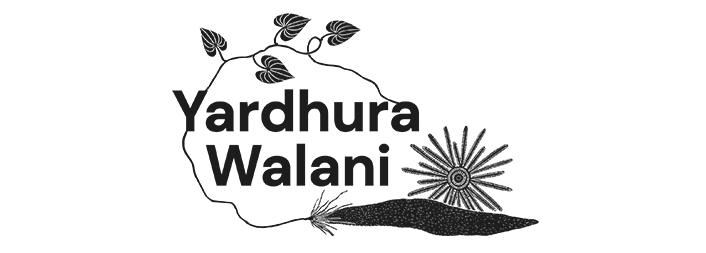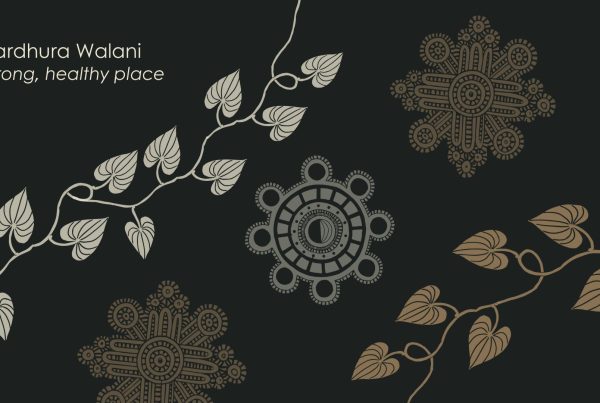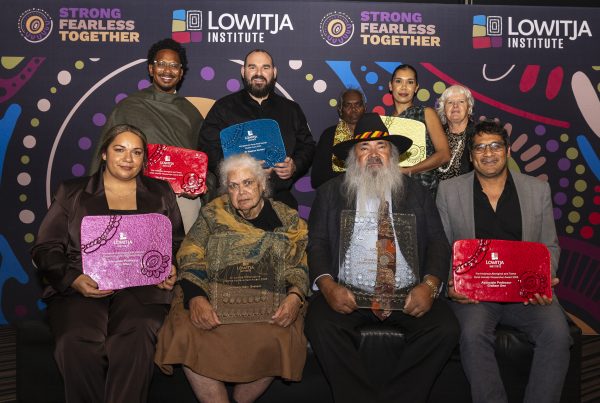This news article was first published in National Indigenous Times.
Ten years on from its first iteration, Indigenous Peoples from across the globe gathered on Ngunnawal and Ngambri Country last week for the Global Indigenous Data Sovereignty Conference.
The sold-out, three-day event gave Indigenous people a chance to reflect on the successes over a decade, as well as map future pathways to advance Indigenous Data Sovereignty.
Over 280 Aboriginal and Torres Strait Islander and other Indigenous peoples from around the world attended the first two days of the conference, whilst over 400 people—including government agencies and non-Indigenous representatives—were able to attend on the third day.
At its core, data sovereignty is about allowing First Peoples to make decisions about their own data and how it is used in systems, ranging from bureaucratic, to nation-state, to someone’s personal data, and who has authority and control over it.
Epidemiologist and Ngiyampaa/Wongaibon man, Professor Ray Lovett, said in the ten years since the first conference, the biggest change in data sovereignty had been amongst “Indigenous communities and organisations themselves”.

Professor Ray Lovett speaking at the Global Indigenous Sovereignty Conference 2025.
The government has pushed a focus on self-determination, backed by Indigenous organisations and the Productivity Commission, to help Close the Gap.
Professor Lovett told National Indigenous Times if self-determination was about allowing First Peoples to make their “own decisions,” then having control of your data will “help you make those decisions”.
“Pretty fundamental to self-determination, right?” he said.
”One of the statements from the conference that I made was 'data equals power'. If you can make decisions; if you're in that fortunate space, you've got to have good data and information to inform what decisions are made.
Professor Ray Lovett

The Yoorrook Justice Commission noted that whilst “First Peoples always recorded data,” officials during colonisation “imposed their own ways of counting Indigenous populations, cultures and territories… These harmful practices have continued, producing deficit data focused on First Peoples’ disadvantage, disparity and deprivation.”
At a presentation in 2019, alongside Associate Prof Gawaian Bodkin-Andrews, Professor Maggie Walter, Dr Vanessa Lee and Professor Tahu Kukutai, Professor Lovett stated: “Indigenous data governance is built around two central premises: the rights of Indigenous nations over data about them, regardless of where it is held and by whom; and the right to the data Indigenous peoples require to support nation rebuilding.”
Earlier this month, the newly developed and first of its kind, ‘Genomics Our Way – An Introduction to Genomics Research with Indigenous Australians’ online course was announced.
Yuin man Professor Alex Brown, who led the development of the course, said it “emphasises Indigenous Data Sovereignty, ensuring that communities have control over their data and that research aligns with their values and priorities”.
Ten years ago, attendees discussed the implications of the United Nations Declaration on the Rights of Indigenous Peoples (UNDRIP) for data. Despite calls by Indigenous experts and some politicians, it has still not been implemented in Australia.
Professor Lovett told National Indigenous Times that despite this, Indigenous peoples have been “leading the charge” on data sovereignty, “as is rightly the case”. He argued it was clear communities were taking on the work, whilst nation-states—some of whom presented on day three—had not seemed to have made large strides over the ten years.
He said community work ranged from “repatriating data for their own decision making from state actors” to developing “their own data infrastructure” and “right through to how communities are engaging with AI; around language revitalisation… it’s very much at the community level”.

Asked for one of his most memorable takeaways from the conference, Professor Lovett pointed to a panel focussing on how Indigenous nations are governing their data, and some of the “novel” ways communities are developing data around “what’s important for them”.
He said this is “quite different to how the state wants to develop data for us because it’s always framed in that economic or social development frame that is very Western”.
“Whereas, communities and groups were talking about, ‘how do you develop measures around our spirituality, our engagement with country and languages,'” he said. “Which is foundational to identity, and cultural identity, but then also building digital platforms and structures that support keeping that data safe.
“It was pretty amazing to see some of the work different people are doing, even in really trying sort of circumstances.”
Images, panel recordings and graphic recordings from the conference can be found here.





